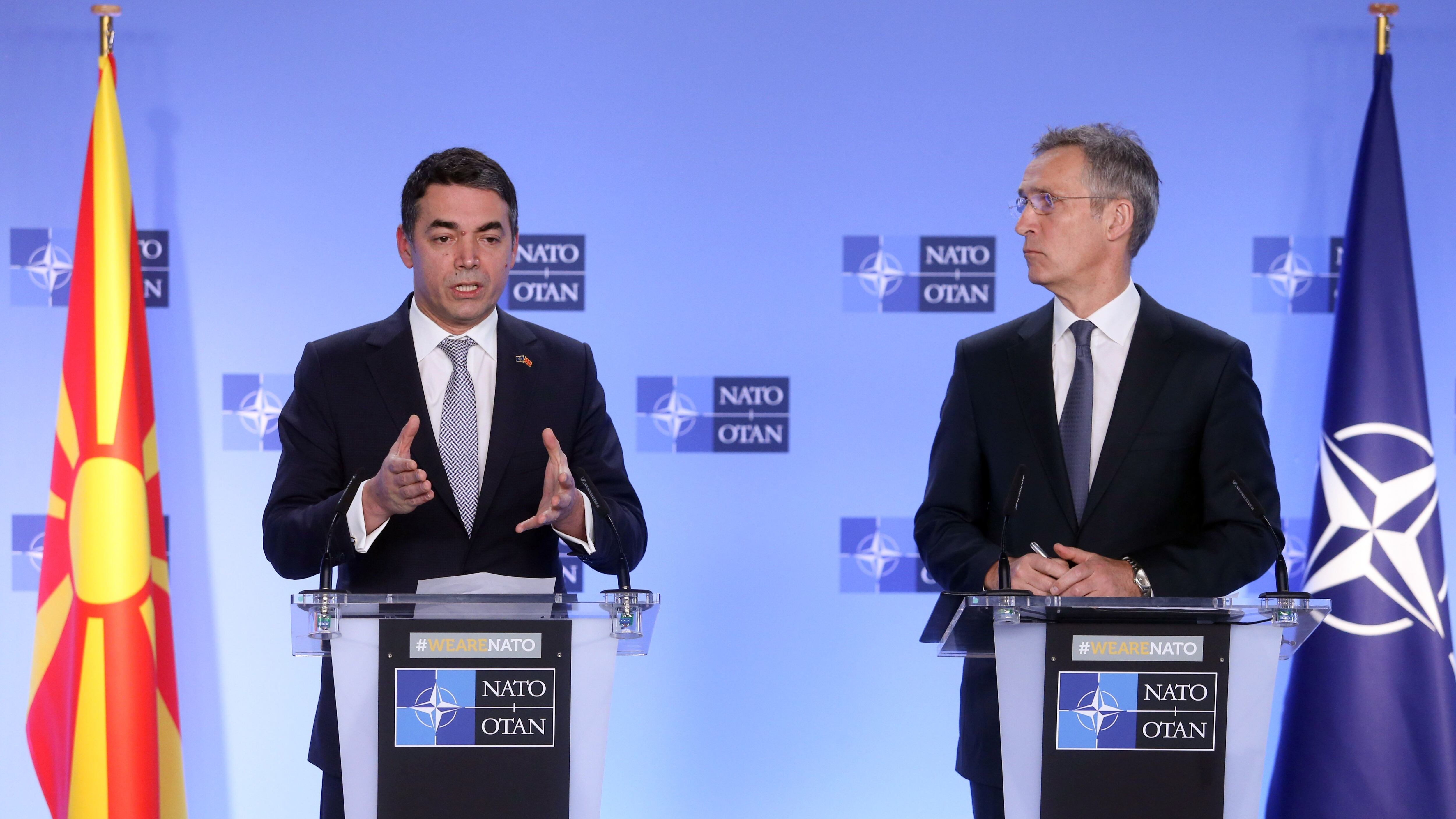And then there were 30.
On Feb. 6, Macedonia signed an accession agreement with NATO, paving its way to join the alliance next year. The country will be renamed “North Macedonia” to appease the Greeks. Despite predictable cheers from the U.S. media and foreign policy elites, the addition of another tiny Balkan country to NATO only highlights a clear reality: NATO is making itself irrelevant by becoming an alliance that can’t fight.
Germany, once NATO’s front line against the Soviets, is the most glaring example. Over the last 25 years, the Germans have chosen to become militarily impotent. On average, just 39 of Germany’s 128 Eurofighter Typhoons, the Luftwaffe’s best fighter plane, were available for service in 2017. Barely a quarter of its older Tornados are serviceable. Maybe this horrible maintenance record is a secondary concern, though: Der Spiegel reported that Germany only had enough missiles for four of the Typhoons to engage in combat.
The German military is currently short a staggering 21,000 officers and noncommissioned officers. Even Germany’s elite KSK special operations troops have earned more of a reputation for their beer than their battles.
Britain is often touted as the exception to European security fecklessness. The United Kingdom maintains its own nuclear deterrent, contributed troops to the Iraq and Afghanistan wars, and (barely) clears the arbitrary 2 percent threshold of defense spending based on its gross domestic product.
Yet, post-financial crisis austerity measures have slashed British forces to the bone. The U.K.’s former chief of the Defence Staff, Gen. Nick Houghton, warned that “U.S. observers have come to realize we are living a lie.”
NATO’s smaller members are in even worse shape. Belgium, home to NATO’s new $1.4 billion headquarters, stands out as the alliance’s premier free rider. With the notable exception of Poland, most of the former Warsaw Pact members provide little.
Macedonia will fit right in.
Macedonia spent $111.8 million on defense in 2017. At 1 percent of GDP, its commitment to defense that year is slightly better than Belgium’s. Small, poor, landlocked Macedonia clearly cannot offer more than a symbolic contribution to NATO’s collective defense. No one serious pretends that it can — Macedonia is really joining NATO to burnish its case for European Union membership.
RELATED

Why it is in America’s national interest to help another country join a trading bloc that competes against the U.S. remains unexplained.
We are now told that a revanchist Russia is a threat to Europe. If so, there is little evidence that the Europeans have noticed, aside from some halfhearted and inadequate rearmament, coming only after years of American pressure. Collectively, the European members of NATO have four times Russia’s population. Russia’s economy is smaller than Canada’s. But in spite of Russia’s dismemberment of Georgia, annexation of Crimea and intervention in Ukraine, NATO members are not making an effort to field viable armies. A study by the think thank Rand found that Russia could overrun the Baltic NATO states within 36 hours.

Europe is counting on massive American intervention in the event of war with Russia, but it has not even taken the necessary measures to allow for this military bailout.
Russia’s still-potent submarine force would threaten any American fleet carrying soldiers to defend Europe. Germany, the nation that invented submarine warfare, currently does not have even one deployable submarine. Britain cannot defend her own coastline. Collectively, the north Atlantic NATO members can keep a single long-range anti-submarine aircraft in the air. In the event of a war with Russia, U.S. forces would be in danger long before they reached Europe’s shores.
When NATO forces were put to the test in a low-intensity campaign in Afghanistan, most quietly failed. Numerous national “caveats” and an unwillingness to take casualties left the majority of NATO troops as glorified spectators. Italy is even alleged to have bribed the Taliban to leave its soldiers alone. The old joke that ISAF really stands for “I Saw Americans Fighting” is unfair to valiant British paratroopers, Danish hussars and a few other NATO contingents who sought out combat in Afghanistan. However, the bravery and sacrifices of some NATO armies were outweighed by the passivity and risk aversion of the majority.
Apologists for NATO point out that European defense budgets have increased, though spending remains wholly inadequate. The American people, whose sons and daughters are already pledged to defend 27 European nations an ocean away, deserve an explanation for why their country remains the anchor and the banker of an alliance that can’t fight.
We are long overdue for a blunt and sober assessment of NATO. Macedonia’s accession into the alliance should prompt reflection, not cheering.
Gil Barndollar is a military fellow-in-residence at Catholic University’s Center for the Study of Statesmanship, and a fellow with Defense Priorities. He served as a U.S. Marine infantry officer from 2009-2016.







